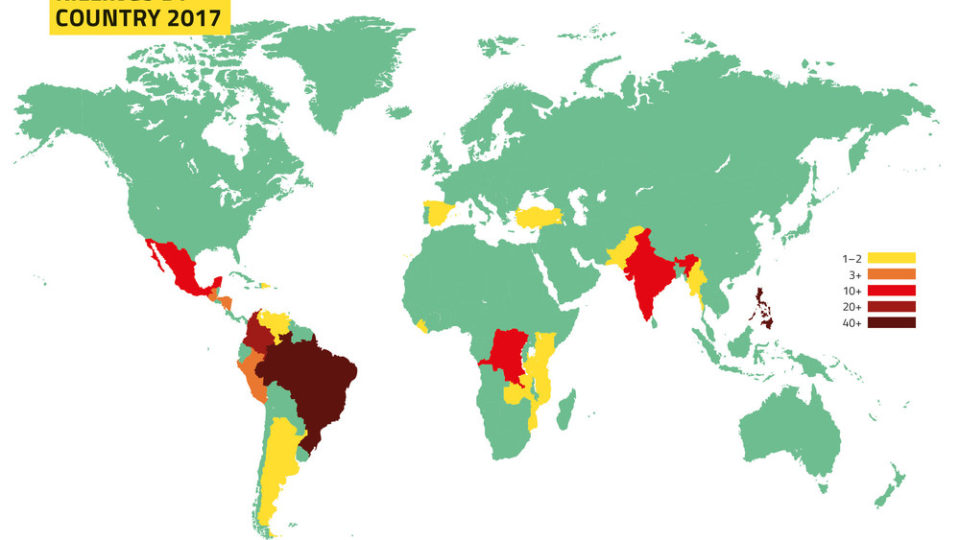A record number of environmental activists were killed in the Philippines last year. That’s what rights watchdog Global Witness reported in its study released yesterday.
According to the report, a total of 48 environmental activists were killed in the country in 2017, the highest number ever for an Asian country.
The total number includes the killing of eight T’boli-Manobo villagers who have been fighting a coffee plantation from infiltrating their land. In a separate report from Global Witness, it said the killing occurred at Lake Sebu, in Mindanao and identified the plantation as Silvicultural Industries, part of the DMCI conglomerate.
According to The Guardian, the eight were massacred by members of the Philippine army in December 2017. However, the Philippine government maintains that the villagers were merely caught in a crossfire between the military and communist rebels.
On a global scale, 2017 also proved to be the deadliest for environmental activists, with 207 activists killed across 22 countries or an average of almost 4 people in a week, Global Witness reported.
Many of those killed were people trying to protect their land from being developed to produce palm oil and coffee, as is the case in the killings of the villagers in Lake Sebu. Agriculture was in fact considered the “bloodiest” industry, with 46 of the murders related to it.
Brazil was the country with the most number of activists murdered at 57. Latin America was the region with the most number of killings, with 60 percent of the incidents occurring there.
Ben Leather, senior campaigner at Global Witness, told AFP: “As global demand for these products increases, there’s a scramble by business actors to get the massive amount of land they need to grow these products. When people dare to stand up for their rights and demand that the environment be protected they are silenced in the most brutal way.”
According to Global Witness, limitations in research gathering could mean that actual numbers are higher. It also added that other forms of threat are also used on environmental activists, such as arrests, intimidation, sexual assaults, cyber attacks, and lawsuits.
The watchdog also said that the country’s respective governments and businesses were complicit in the killings.
In their statement, Leather said: “Governments, companies and investors have the duty and the power to support and protect defenders at risk, and to guarantee accountability wherever attacks occur. But more importantly, they can prevent these threats from emerging in the first place, by listening to local communities, respecting their rights, and ensuring that business is conducted responsibly.”




